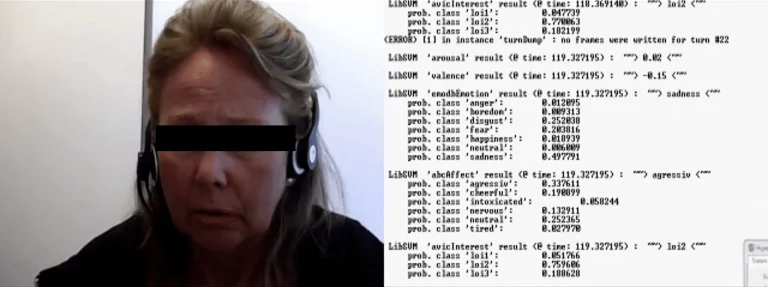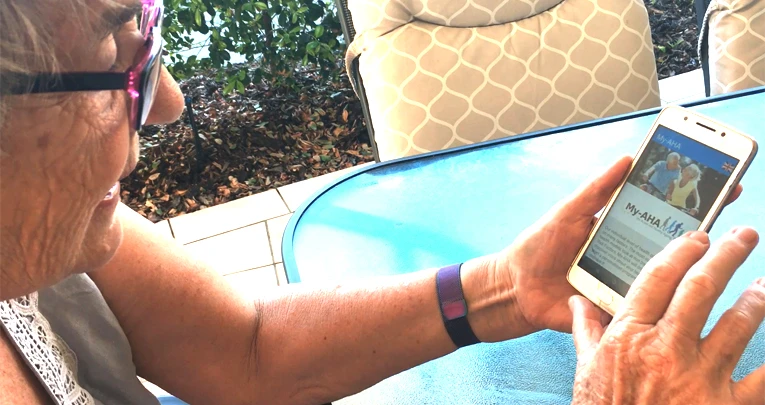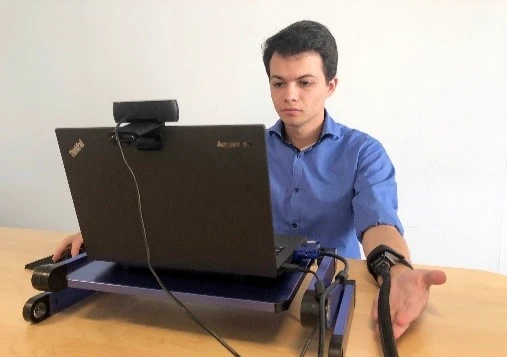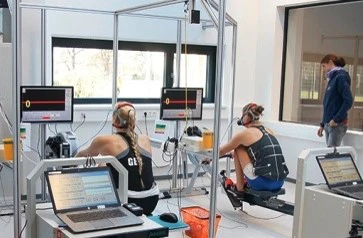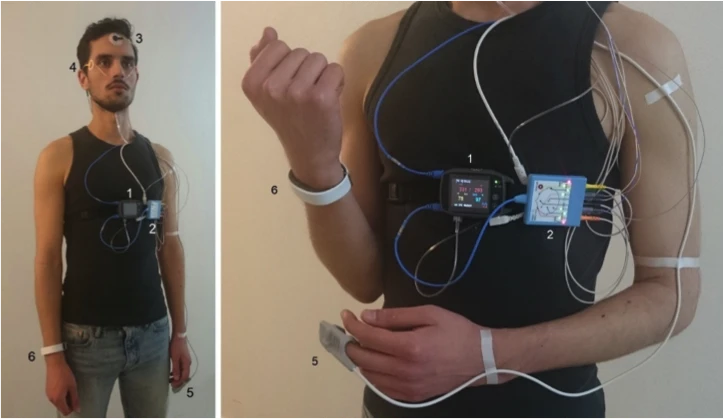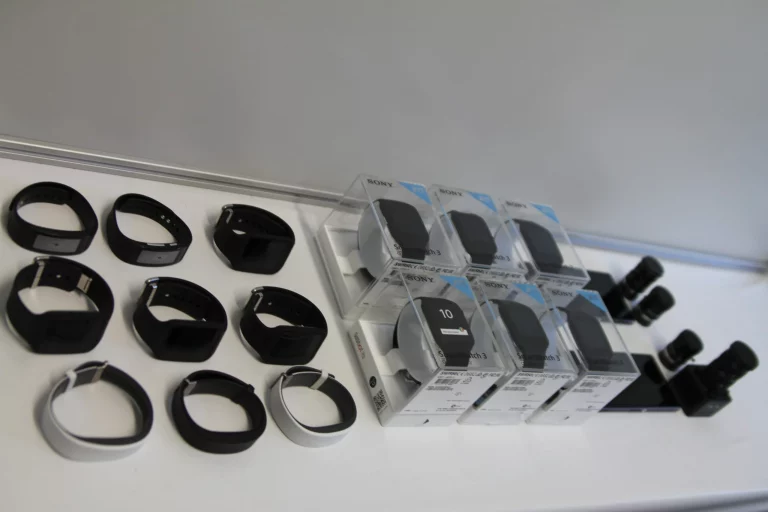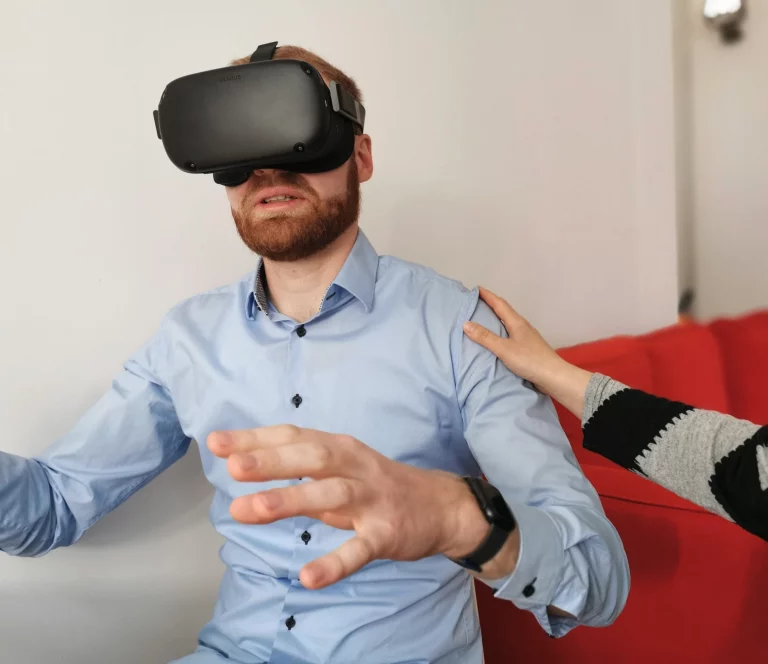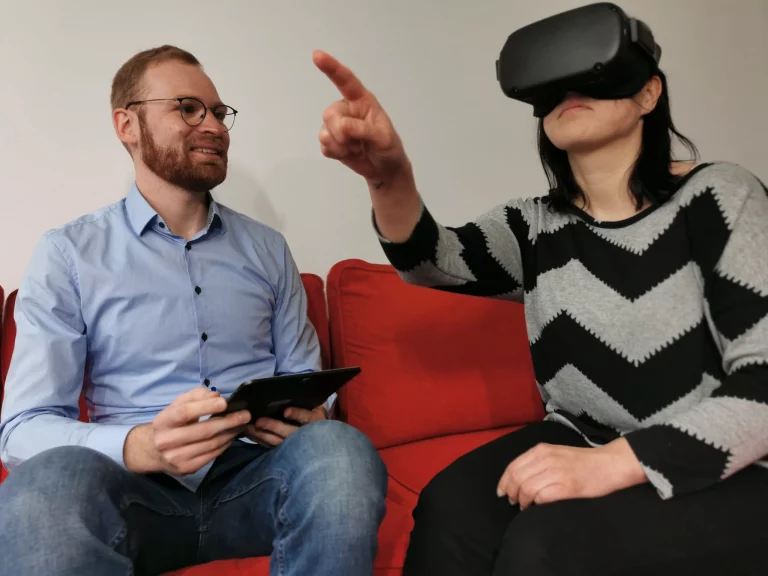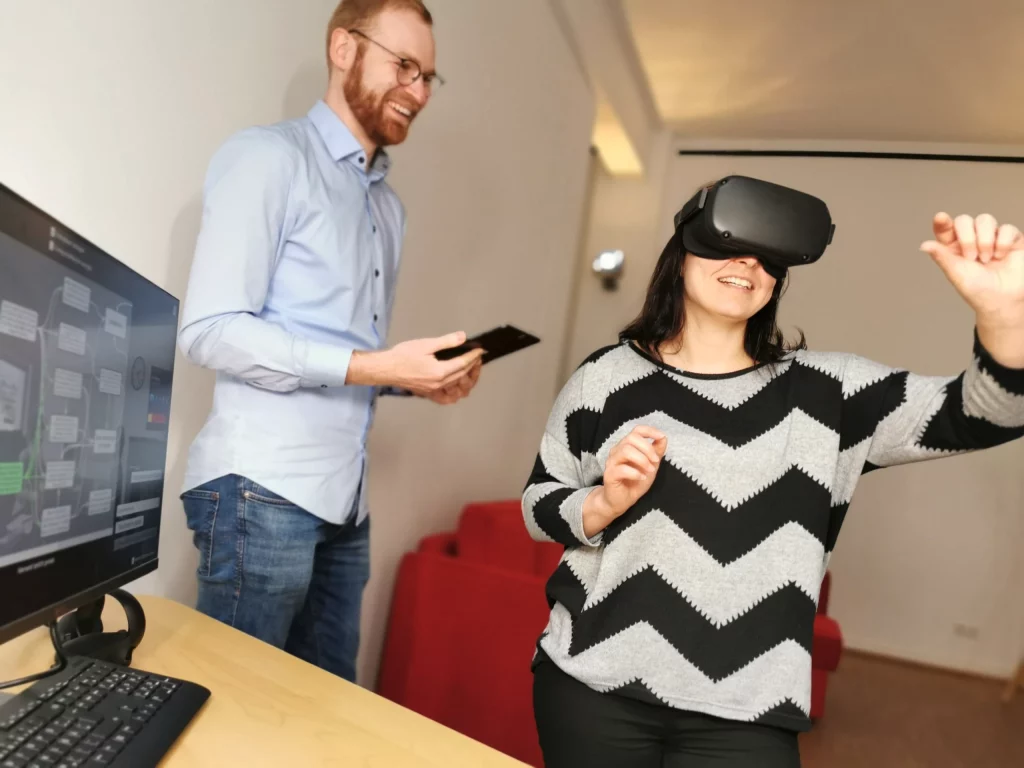
Virtual Reality-Based Support of Unipolar Depression
Support of Acute Therapy and Relapse Prevention in the Deep Psychological Treatment


Project Justification
Within the framework of cognitive behavioral therapy (CBT), virtual reality (VR) has already been successfully applied in the treatment of various anxiety disorders, including specific phobias and panic disorders. VR enables controlled exposure scenarios that enhance therapeutic outcomes while ensuring patient safety and flexibility.
In theory, VR environments also offer opportunities for therapeutically guided role-playing that can be used to address interpersonal dynamics and emotional processing. By transferring the therapeutic interaction into a virtual setting, potentially disruptive effects on the therapist–client relationship can be minimized.
Despite these promising developments, the application of VR in the context of depth psychology and psychoanalytic therapy remains largely unexplored. Further research is needed to examine how immersive technologies might support or extend these approaches, particularly in facilitating symbolic processing, transference phenomena, and unconscious material within a virtual framework.
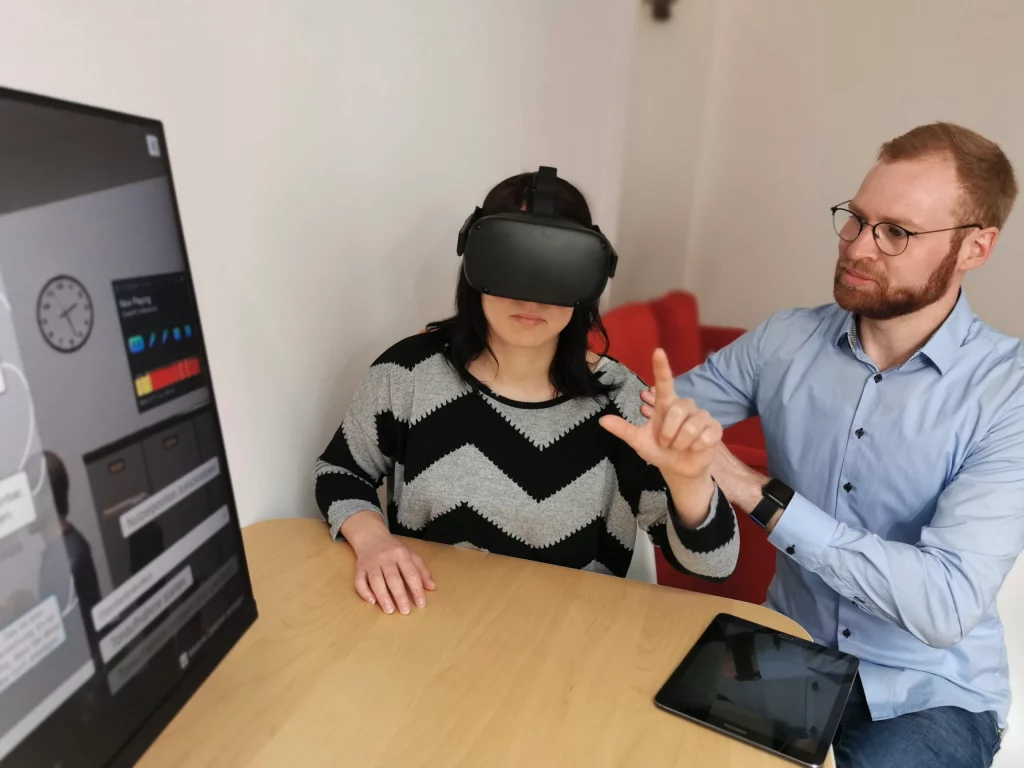
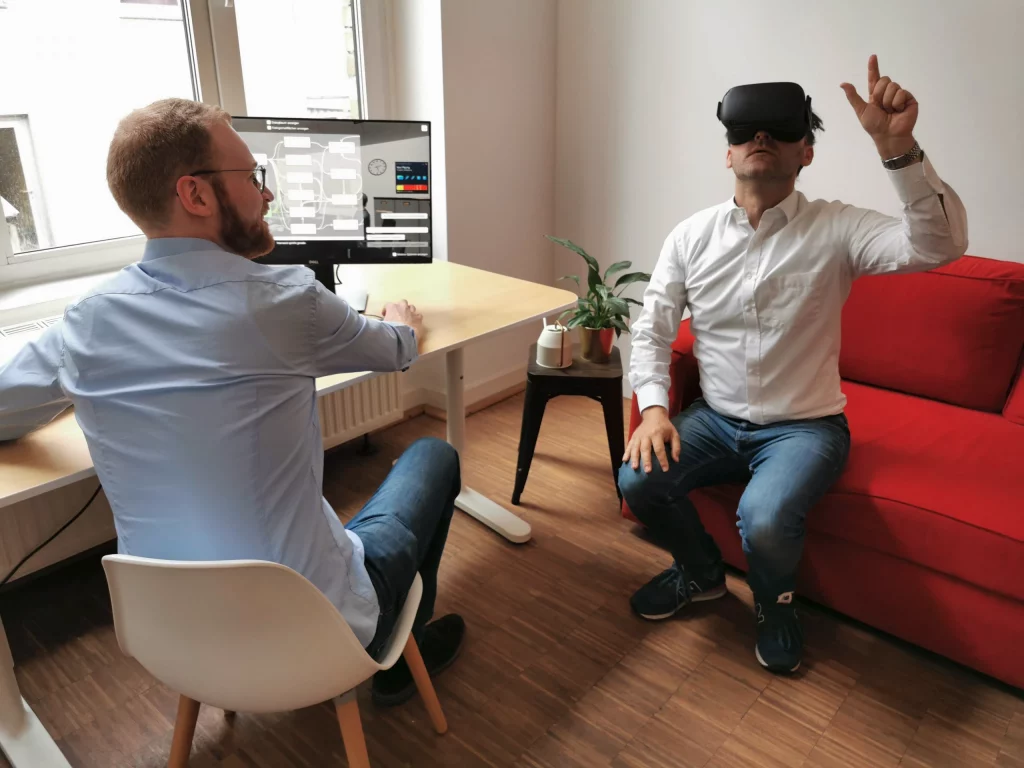
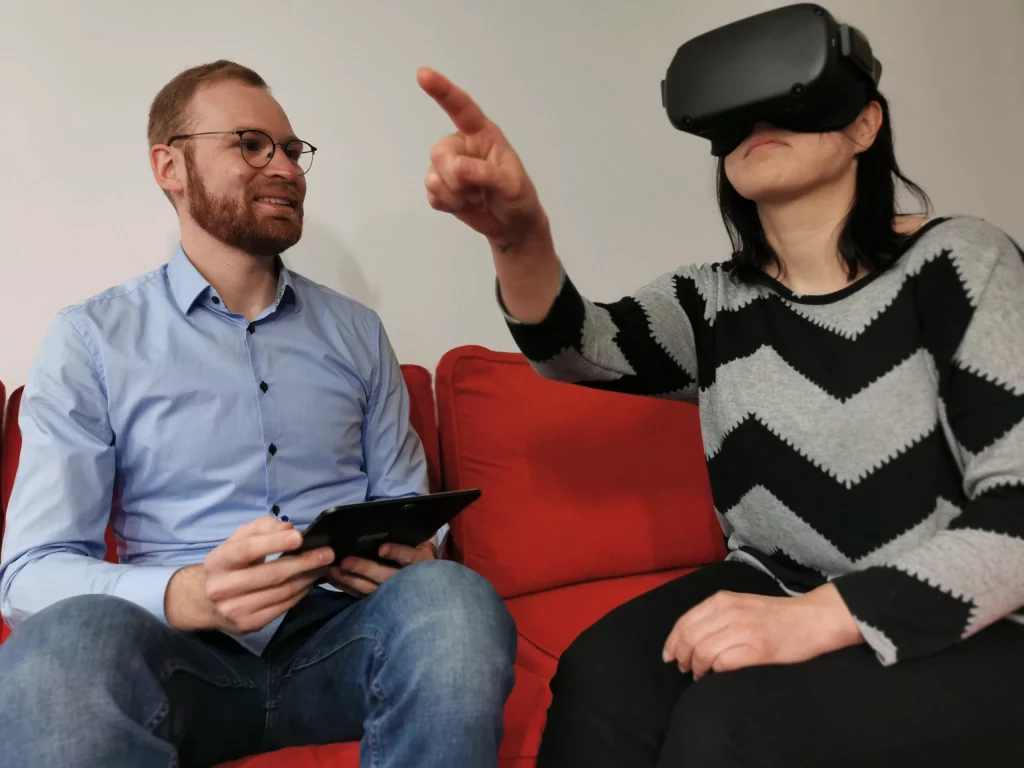
Application Scenario: Therapy
Our Approach
The EU-funded research project DeepVR investigates the therapeutic potential of virtual reality (VR) in the deep psychological treatment of unipolar depression. Under the supervision of trained therapists, patients engage in VR-based social role plays in which they are confronted with central relational conflict themes. The immersive nature of VR provides a safe and controlled environment for patients to experiment with new behaviors and reflect on their self-perception through repeated, emotionally relevant interactions.
During these therapeutic scenarios, depression-related markers are continuously extracted from speech data to build a tailored speech corpus, while eye-tracking data provide additional indicators of affective and cognitive states.
A feasibility study will assess the system’s usability, user experience, and acceptance in a clinical sample of individuals with unipolar depression. DeepVR thus aims to extend the scope of psychodynamic and depth-oriented interventions by integrating immersive technologies with individualized digital diagnostics.
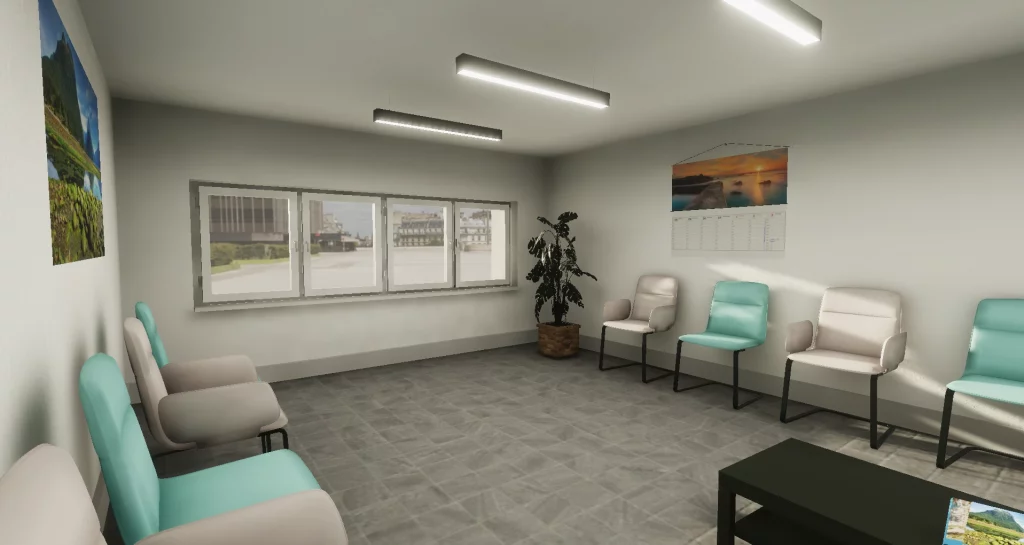
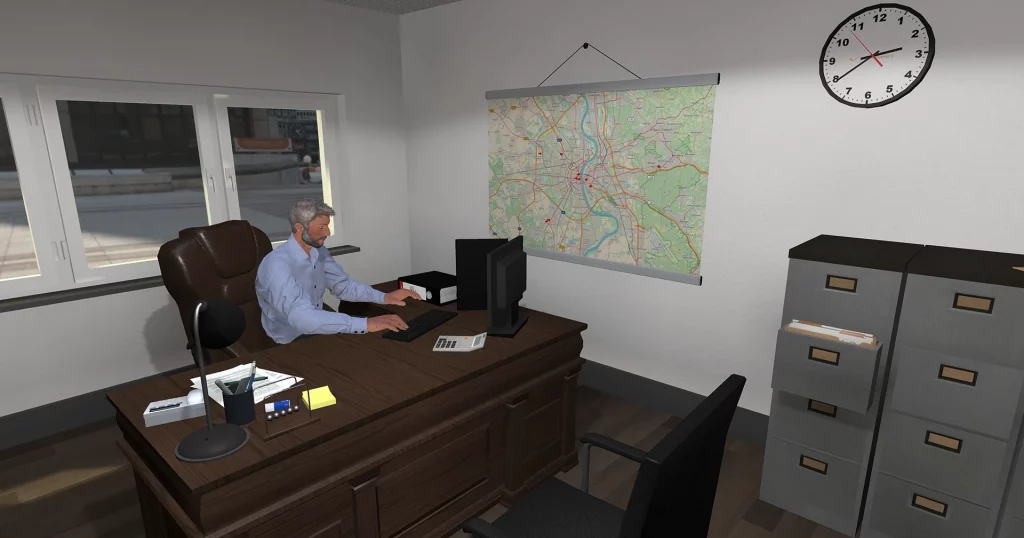
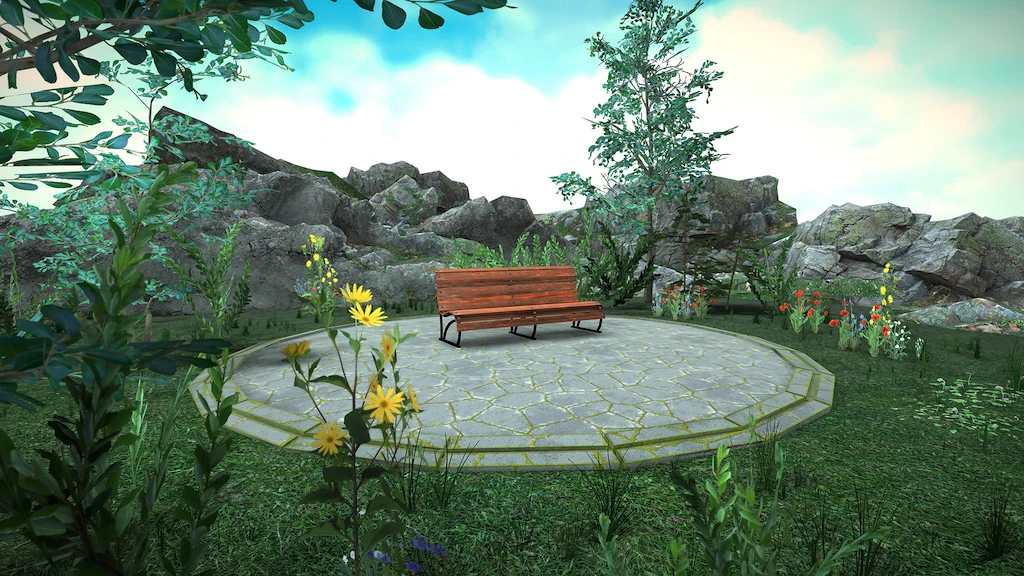
Scenario 1 of the VR environment: Therapy room and enviroment of the mindfulness exercise.
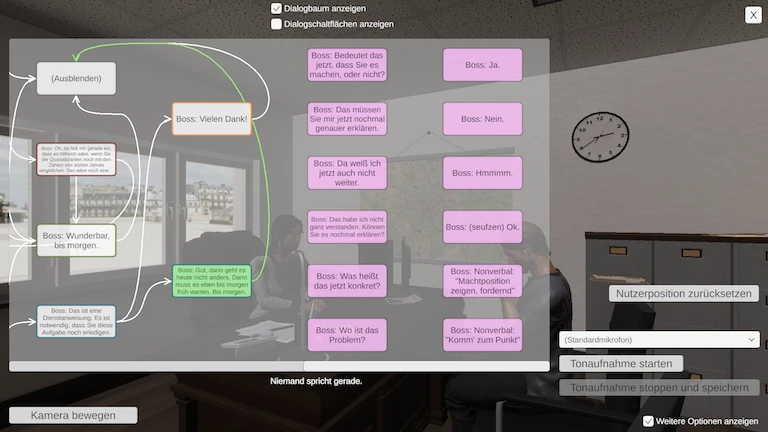
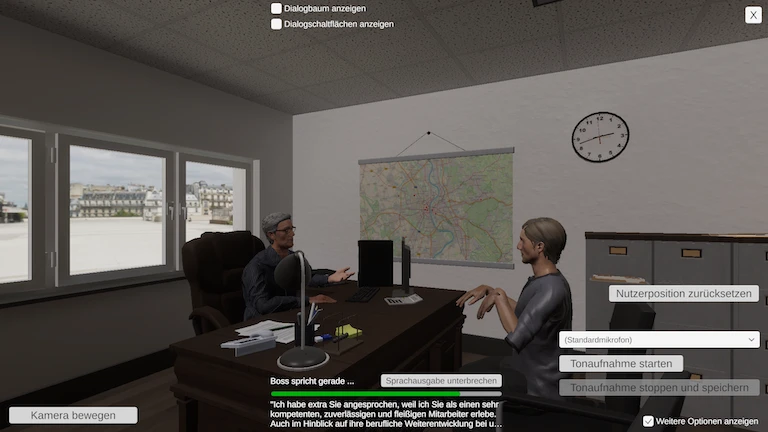
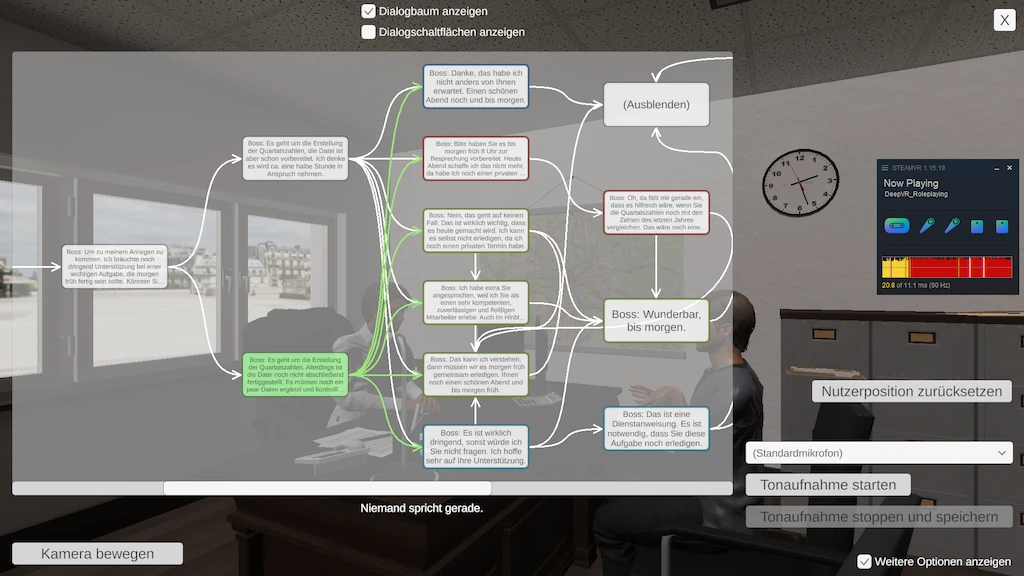
Scenario 2 of the VR environment: Interaction incl. course of conversation between therapist and patient.
Work Packages, Insights and Outcomes
Within the DeepVR project, IXP is responsible for conducting a comprehensive requirements analysis to identify the needs and expectations of key user groups and stakeholders, including patients and therapists. Based on these insights, IXP leads the conceptualization and design of relevant depression symptom indicators and therapy success markers derived from behavior exhibited within the VR environment.
A core focus of IXP’s contribution is the development of deep learning–based prediction models aimed at relapse prevention. These models are trained using behavioral parameters such as mood, interest, and activity levels observed during therapy sessions. The resulting predictive frameworks serve as potential early warning systems, helping to detect the risk of recurrent depressive episodes at an early stage.
To ensure the overall impact and applicability of the system, IXP also oversees the evaluation of its therapeutic effectiveness, usability, and user acceptance within the target population. This integrated approach supports the development of an evidence-based, user-centered tool for the deep psychological treatment of unipolar depression.
Impression of the mindfulness module within the VR environment
Successful Projects
Development of a screening and support portal as an extensive psycho-social diagnostic mode for refugees
Features extraction of auditory, visual, and physiological data for diagnosis system of affective disorders
A holistic view of interrelated frailties to reduce frailty risk by improving overall well-being
Feedback-assisted rehabilitation after surgery of the anterior cruciate ligament
A contribution of German elite sport to smart health promotion
Market overview, legal and technical requirement analysis, living lab study, and implementation of corporate health management programs
Desktop and virtual reality-supported module variants to bridge waiting times between therapy sessions and enrich ambulant therapy
Support of acute therapy and relapse prevention in the deep psychological treatment


